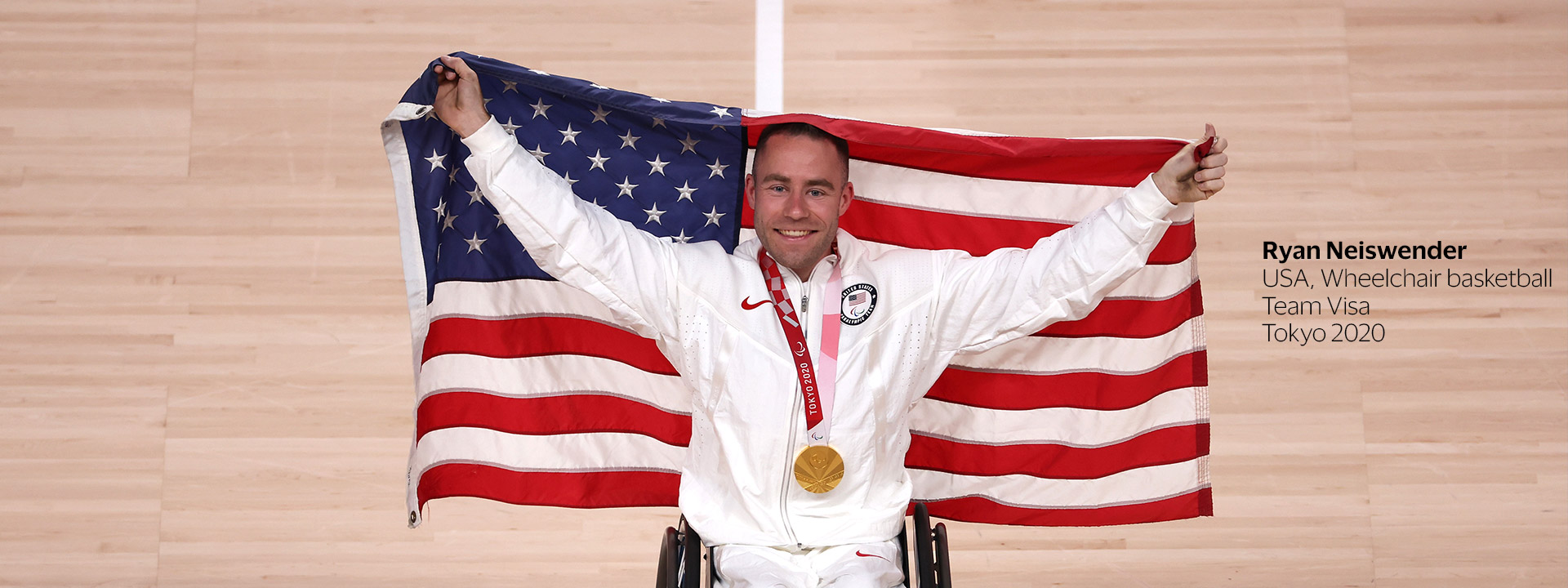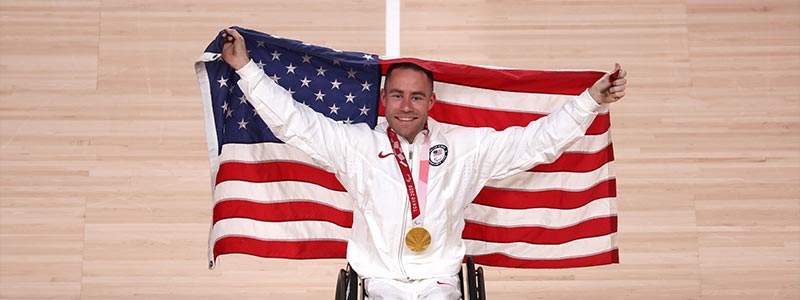

Ryan Neiswender was playing on a high school wheelchair basketball team in his hometown of Lebanon, PA, when he saw the London Paralympic Games.
“I vividly remember watching Team USA compete in London. I can tell you what their jerseys looked like and what the stadium looked like. And I thought to myself, ‘I think I could do that.'’’
Dedicated to a dream
In the year that followed, Ryan made a plan.
The under-23 national team and the senior men’s national team tryouts were the next calendar year. He wrote down the tryout dates on a piece of paper and tacked it to the ceiling above his bed.
“I would wake up in the morning and the first thing I would see is that date,” he said. “That pushed me to wake up earlier, get to the gym earlier, and create daily rhythms.”
He’d scrimmage with Team USA college players at university camps. He’d ask the coaches to give him drills to do at home. And he’d ask competitors how to increase speed or about the ways they’d seen the game evolve.
“It’s being vulnerable enough to say, ‘Hey, I don’t know everything and I’d like to know more.”
Self-worth vs. self-confidence
A senior in high school, Ryan qualified for the senior men’s national team and helped them clinch a gold medal at a major international tournament in 2013. But at the following year’s tryouts, he didn’t make the team. Getting cut stung, but ultimately put him on a path of self discovery.
“I think that when you pair a rock-bottom moment with curiosity, it allows you to discover some of those hard truths. I wanted to address them head on. I wanted to ask myself the difficult questions around why do I struggle with this? Or why does this really make me mad? Or why am I allowing other people to have power over me in terms of how they think or feel or see me.”
Ryan went on to play ball in college, where he met his wife Lauren. They were friends for the first few years before they started dating.
“It was a combination of working through self-doubt. You’re still discovering who the heck you are no matter whether you have a disability or not,” he said. Along the way, he found his self-worth off the court.
“It's important to understand and distinguish the difference between self-worth and self-confidence. You can't steal my self-worth,” he said.
Do more than show up
To make the national team once more, Ryan did more than just show up, he was intentional about what he wanted to get out of his training, focusing on learning from others, staying consistent and putting in the reps.
“I believe I can have one good hour of training and you can have four average hours of training and I'm going to get to the place faster than maybe you might get to. It's creating the daily discipline of just showing up and getting there, paired with the knowledge that I'm getting from other people. Those two things allowed me to feel confident going into those tryouts,” he said.
This time, Ryan made the senior men’s national team, helping them once again win gold in international competition in 2017.
From Texas to Tokyo
Ryan and his wife were relaxing after a day of training in Texas when he got the news: he had qualified to join Team USA at the Tokyo 2020 Paralympic Games.
“Our sport only has these moments once every four years, so you're just working super hard for this one moment and when you actually have it — not only is it exhilarating, but there's also just, I can breathe, the pressure's off in some ways. I've got, check one, the Paralympic Games; check two, let's go win gold.”
And when the pandemic-delayed Paralympic Games finally happened in 2021, win they did — breaking a 20-year drought.
“I'm really proud of that in my career. I'm proud of helping build that culture and setting a standard of excellence for what wheelchair basketball in the United States of America should look like.”